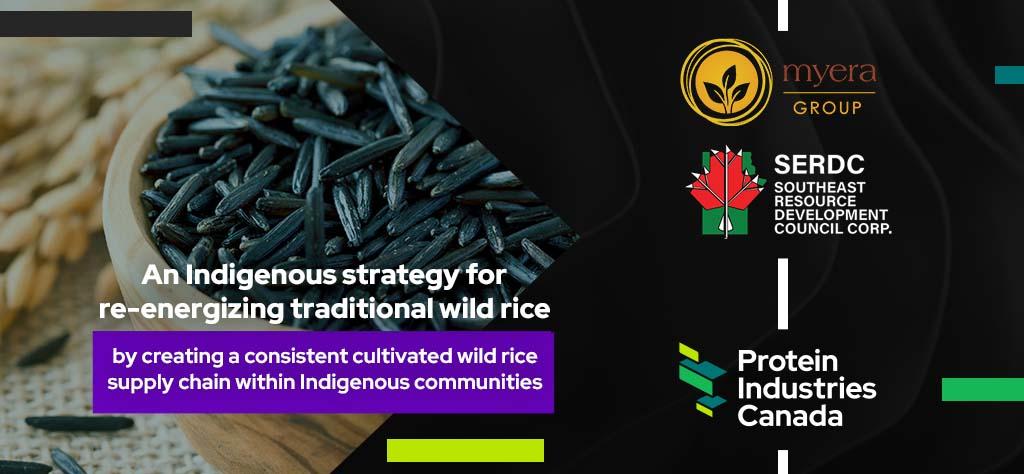Canadian partners strengthening Indigenous wild rice opportunities
- Posted:

Canada’s plant-protein potential extends beyond the traditional crops grown along the southern half of our country. The wild rice grown throughout Indigenous communities across the country has the potential to help grow and diversify our plant-based foods and ingredients sector, while also ensuring Indigenous entrepreneurs and producers have an active role in Canada’s agrifood-based economy and labour force.
Myera Inc. and the Southeast Resource Development Centre (SERDC) have partnered to strengthen Canada’s wild rice supply chain in order to better incorporate it into the overall plant-based food and ingredients sector. With a co-investment from Protein Industries Canada, the partners have taken a four-pronged approach to the project:
- Identify which wild rice varieties can best be grown on Canada’s prairies, while prioritizing high protein content;
- Assess Indigenous communities to determine which have a viable economic fit to grow wild rice;
- Train Indigenous communities on growing wild rice; and
- Commercialize the crop through new Indigenous foods recipes.
“Growing Canada’s plant-based sector to its full potential means strengthening every link in our value chain, and our Indigenous communities are an essential part of making that happen,” Protein Industries Canada CEO Bill Greuel said. “Myera and the Southeast Resource Development Centre have the knowledge and skills needed to ensure our Indigenous communities are offered the appropriate training to help them enter a growing sub-set of our sector—wild rice cultivation—while also strengthening that sub-set to the point that it’s seen as a valuable, long-term career option.”
Since the project’s launch, the partners have seen success in each area of focus. Its new variety and recipe development, in particular, have made significant progress. Working with Indigenous communities around the world, the partners have launched a new wild rice Solidarity Blend—a packaged rice blend containing Myera’s wild rice, purple rice from Thailand, black rice from Australia and wild rices from the Amazon.
Myera hopes this is just the beginning of not only its product development, but also its efforts to showcase the work of both Canadian and global Indigenous communities.
To ensure Canadian Indigenous communities have the skills and talent to build on this success, Myera and SERDC are offering training in the areas of wild rice agronomics, cultivation and recipe development. Uptake on the training has been positive to date.
Though nearing the end of their Protein Industries Canada co-investment, this project is only the beginning for Myera and SERDC. Together, the partners look forward to strengthening the contribution Indigenous communities make to the plant-based food and ingredients sector, in Canada and abroad.
